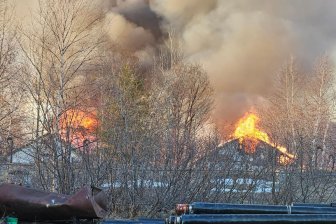EDITORS NOTE: This is the first instalment of a two-part series on reported sexual assault cases in Halifax. The second part was published on May 18.

The rate of reported sexual assaults leading to charges in Halifax is less than half the national average.
Numbers obtained from the Halifax Regional Police and Statistics Canada show that in Halifax, reported sexual assaults lead to charges 22 per cent of the time, compared to the national average of 44 per cent of reported incidents.
Police provided Global News with the total number of incidents from 2010 to 2015, the numbers from Statistics Canada are an average of the years 2010 to 2014.
The cases identified by the police are broken down by how they were resolved;
- In total, 73 per cent were closed with no charges and the remaining five per cent were still open. Of the closed cases, the majority of them were closed with no further action, meaning there wasn’t enough evidence to corroborate the report or the victims didn’t want to move ahead on the case.
- Other incidents were closed as “unfounded,” meaning the reported sexual assault didn’t take place.
- The final category used to document a closed case is “cleared otherwise” meaning a full investigation took place and then the victim didn’t want to move ahead or that the perpetrator or victim passed away.
“It is a concerning ratio but we can only do so much,” HRP Sgt. Stephanie Carlisle said.
The “primary” reason why cases don’t lead to charges is because victims don’t want to go through a trial, Carlisle said. She and another sergeant supervise 11 investigators on the sexual assault unit.
“A lot of those reasons our victims are not wanting to proceed any further, those reasons could be not wanting to go through the court system, it could be not wanting to face their perpetrator,” Carlisle said.
“If somebody does not want to proceed with an investigation, we shut it down.”
‘I’m scared’: alleged sexual assault victim anxious about continuing her case
While most sexual assault cases never have a name or face to go with the story, Alix Parker went public with hers because she wanted to encourage others to come forward.
After going through the initial steps of filing a police report, she said she’s been avoiding responding to a follow-up call from her investigator. The fear of the unknown if she decides to continue with the case of an alleged assault on a Halifax Transit bus is holding her back.
“I’m scared and I haven’t told anyone this because I didn’t want people do be disappointed in me,” Parker said.
“I totally get not wanting to relive that experience, not wanting to hash it all out in court, in front of people, and have people pick it apart. If it even gets to court,” she said.
Number of reports ‘not going the distance’ is too high
HRP and RCMP don’t track specific data on why individual cases are closed, so it’s not clear what proportion are closed because of lack of evidence and what number are closed because the victim doesn’t want to proceed.
“How do you actually respond effectively to the problem if you don’t even have the statistics to see how big the problem is?” Dalhousie University law professor Wayne MacKay said.
He added that no matter the reasons, the rate of reported sexual assaults not leading to cases could deter other victims from coming forward.
“It still doesn’t send a very good message about the chances of success in filing a complaint,” he said.
“Seventy-three per cent not going the distance is a very high number.”
The concern, according to MacKay, is that if so few cases lead to charges — let alone a trial or a conviction — then the perpetrator faces no consequences.
“The effect …is that the perpetrator has no liability and is still free to commit other crimes,” MacKay said.
Victims face many hurdles when reporting sexual assaults
The system poses serious challenges for sexual assault victims who risk being re-victimized in the process, executive director of the Avalon Sexual Assault Centre Jackie Stevens said.
“It’s not necessarily that they’re treated disrespectfully by police, but that the process itself and the length of time that it takes, and the impact that is has on you emotionally and on your life, that people sometimes… don’t feel it’s a positive experience.”
In order to better support victims, Stevens says better stats are need to understand why so many cases are closed.
The Avalon Sexual Assault Centre is compiling data on cases they’ve tracked from first report to what happened to the case and why. That report is expected to be released in the fall.
–With files from Richard Dooley, Global News




Comments